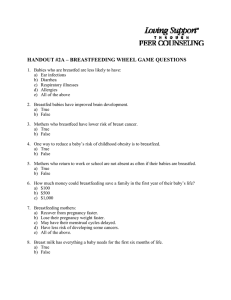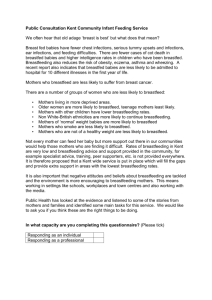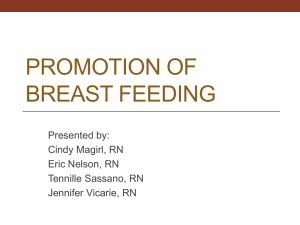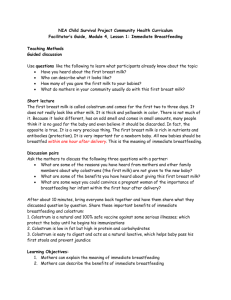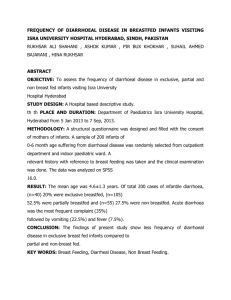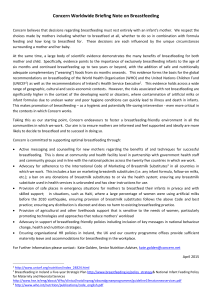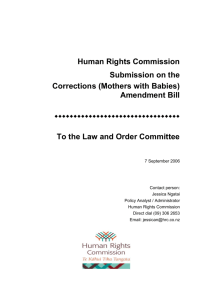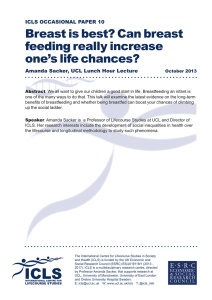AB513fact - California WIC Association
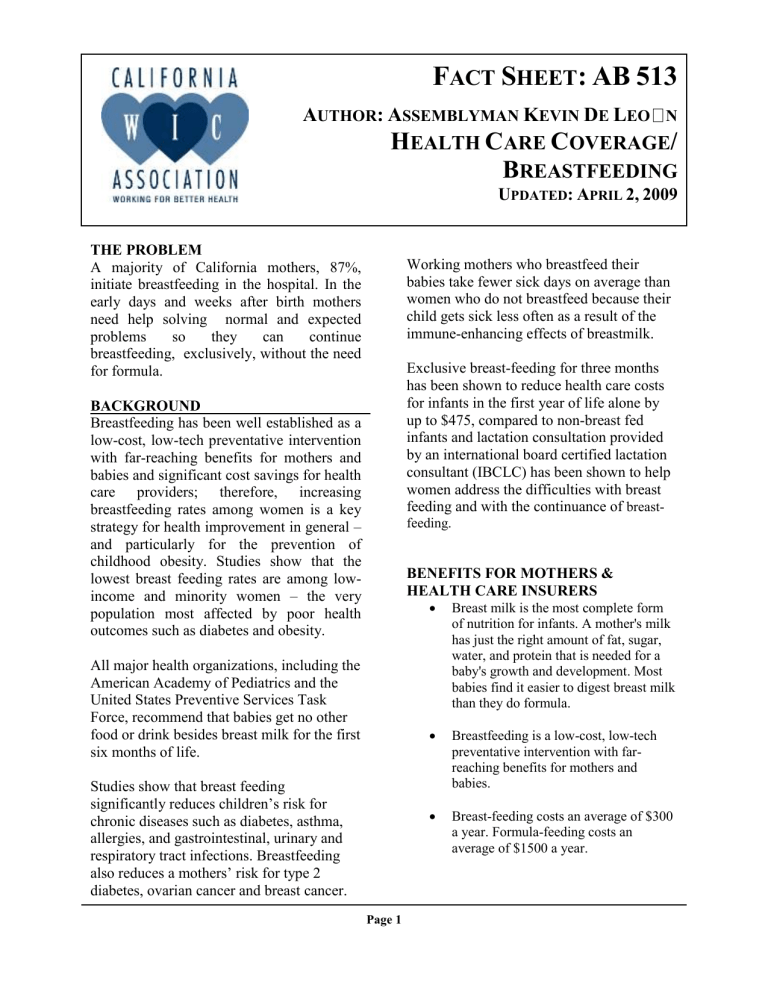
THE PROBLEM
A majority of California mothers, 87%, initiate breastfeeding in the hospital. In the early days and weeks after birth mothers need help solving normal and expected problems so they can continue breastfeeding, exclusively, without the need for formula.
BACKGROUND
Breastfeeding has been well established as a low-cost, low-tech preventative intervention with far-reaching benefits for mothers and babies and significant cost savings for health care providers; therefore, increasing breastfeeding rates among women is a key strategy for health improvement in general – and particularly for the prevention of childhood obesity. Studies show that the lowest breast feeding rates are among lowincome and minority women – the very population most affected by poor health outcomes such as diabetes and obesity.
All major health organizations, including the
American Academy of Pediatrics and the
United States Preventive Services Task
Force, recommend that babies get no other food or drink besides breast milk for the first six months of life.
Studies show that breast feeding significantly reduces children’s risk for chronic diseases such as diabetes, asthma, allergies, and gastrointestinal, urinary and respiratory tract infections. Breastfeeding also reduces a mothers’ risk for type 2 diabetes, ovarian cancer and breast cancer.
F ACT S HEET : AB 513
A
UTHOR
: A
SSEMBLYMAN
K
EVIN
D
E
L
EO N
H EALTH C ARE C OVERAGE /
B
REASTFEEDING
U PDATED : A PRIL 2, 2009
Working mothers who breastfeed their babies take fewer sick days on average than women who do not breastfeed because their child gets sick less often as a result of the immune-enhancing effects of breastmilk.
Exclusive breast-feeding for three months has been shown to reduce health care costs for infants in the first year of life alone by up to $475, compared to non-breast fed infants and lactation consultation provided by an international board certified lactation consultant (IBCLC) has been shown to help women address the difficulties with breast feeding and with the continuance of breastfeeding.
BENEFITS FOR MOTHERS &
HEALTH CARE INSURERS
Breast milk is the most complete form of nutrition for infants. A mother's milk has just the right amount of fat, sugar, water, and protein that is needed for a baby's growth and development. Most babies find it easier to digest breast milk than they do formula.
Breastfeeding is a low-cost, low-tech preventative intervention with farreaching benefits for mothers and babies.
Breast-feeding costs an average of $300 a year. Formula-feeding costs an average of $1500 a year.
Page 1
Breastfed babies have fewer ear, respiratory and urinary tract infections.
Breastfed children are less likely to suffer from chronic diseases such as diabetes, asthma, and obesity than children who were formula fed.
Breastfed children have fewer trips to the doctor’s office and fewer days of hospitalization than children who were formula fed.
Breastfed children take fewer medications than children who were formula fed.
Breastfeeding lowers a mothers risk for type 2 diabetes and for Breast and
Ovarian cancers.
Studies show that children who were breastfed score higher on cognitive and
IQ tests.
Babies who are breastfed provide significant cost savings for businesses, health care providers and society as a whole.
PREVIOUS LEGISLATION
Section 43.3 of the Civil Code recognizes the right of mothers to breastfeed their child in any public or private location.
AB 1025 (Frommer 2001, Labor Code
Chapter 3.8 Sections 1030-1033) requires all public and private employers to provide a reasonable amount of break time and a place, besides a bathroom stall, for employees to breastfeed their children.
Health and Safety Codes Sections 123360 and 123365 direct the Department of Public
Health to promote breast-feeding in its public service campaign and to develop a training course and recommendations for
Page 2 hospitals. Hospitals are also directed to provide a lactation consultant or lactation materials to new mothers.
THE SOLUTION
This bill would improve access to breastfeeding support for mothers by requiring a health care service plan and a health insurer to include coverage for lactation consultation and for the rental of breast pumps as part of their health care service plan contracts or health insurance policies that provide maternity coverage.
Lactation consultants and the cost of renting breast pumps is an important step in closing the gap between women who are most and least likely to breastfeed.
SPONSOR
California WIC (Women’s Infants and
Children’s) Association
CONTACTS
Karen Farley, CWA
916-448-2280 or kfarley@calwic.org
Emily Cohen, Assembly Fellow
916-319-2045 or Emily.cohen@asm.ca.gov
